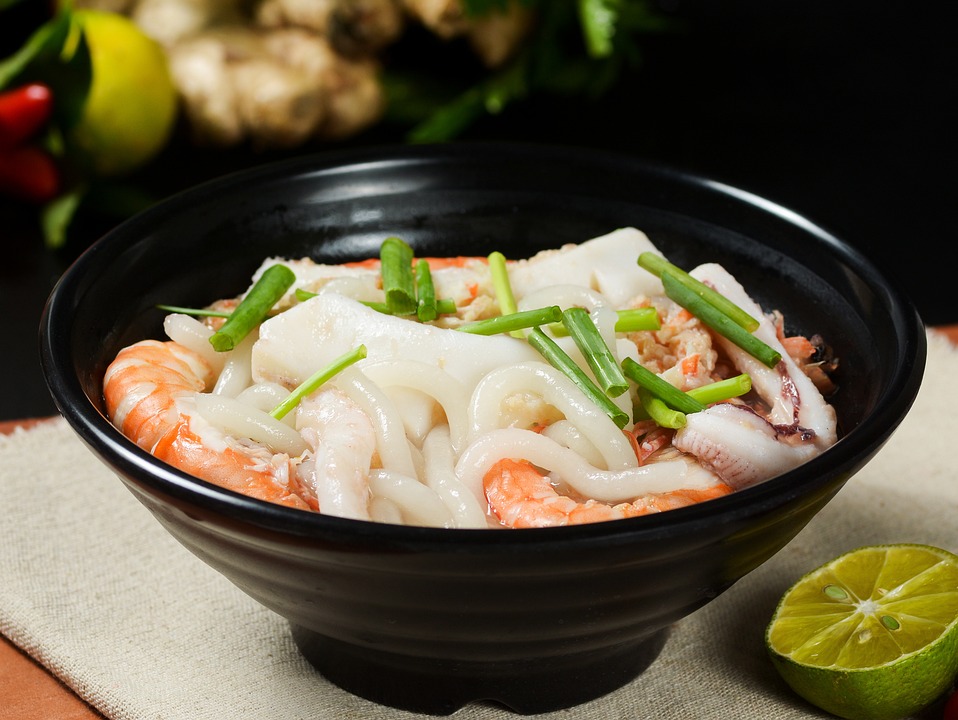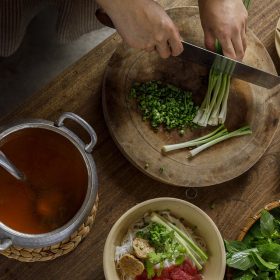Introduction
Pho is a popular Vietnamese soup that typically contains beef or chicken bones. Many pet owners wonder if it is safe to give their dogs the leftover bones from their pho. While dogs are known to enjoy chewing and gnawing on bones, certain precautions need to be taken to ensure their safety and well-being.
Potential Benefits
Bones can be a natural source of essential minerals and nutrients for dogs. Chewing on bones helps promote dental health by reducing plaque and tartar buildup. It also provides mental stimulation and can alleviate boredom or anxiety in dogs.
Risks and Concerns
Although bones may have potential benefits, there are several risks associated with giving dogs bones from pho:
- Choking Hazard: Bones can splinter, especially when cooked, and small sharp pieces can pose a choking risk to dogs.
- Internal Injuries: Bone fragments may cause internal injuries if swallowed, such as puncturing the digestive tract.
- Obstruction or Blockage: Bone fragments can get stuck in the esophagus, stomach, or intestines, leading to blockages that may require surgical intervention.
- Foodborne Illness: Bones, especially if not properly handled or stored, can harbor bacteria like Salmonella or E. coli, which can cause food poisoning in dogs.
Alternatives
If you want to provide your dog with a similar chewing experience or offer dental benefits, consider safer alternatives:
- Commercial dog bones or chews specifically made for dogs, which are designed to be safer and less likely to splinter.
- Rubber or nylon chew toys, which are durable and designed to promote dental health.
- Raw carrots or apple slices, which can provide a crunchy texture while being safe and nutritious for dogs.
Conclusion
While it may be tempting to give your dog bones from pho, it is generally not recommended due to the potential risks involved. The safety and well-being of your furry friend should always be the top priority. Instead, opt for safer alternatives that offer similar benefits without the associated hazards. If you have any concerns about your dog’s diet or health, consult with your veterinarian for personalized advice.

Cuong Nguyen is a talented writer and experienced waitress at Vietnampalace.net, a renowned Vietnamese restaurant that offers an extensive menu of authentic Vietnamese cuisine. With a background in the competition of Vietnamese cuisine, Cuong brings a wealth of knowledge and expertise to the dining experience. From delicious pho dishes to fresh spring rolls, Cuong ensures that every meal is made with the freshest ingredients and authentic flavors.With exceptional service and a friendly atmosphere, Cuong takes pride in providing a memorable dining experience for every customer.
Whether you’re a vegetarian looking for options or a meat lover craving the flavors of traditional Vietnamese dishes, Cuong guarantees a delightful culinary adventure. So, visit Vietnampalace.net and let Cuong guide you through the tantalizing world of Vietnamese cuisine.


